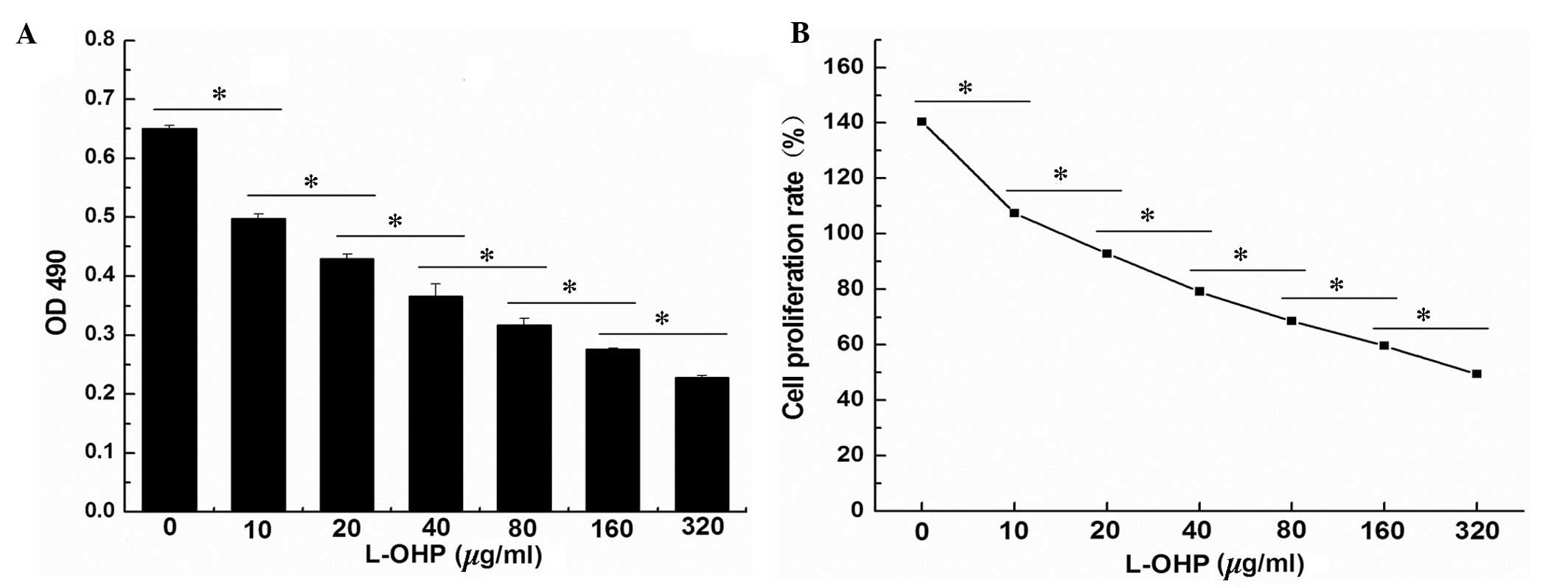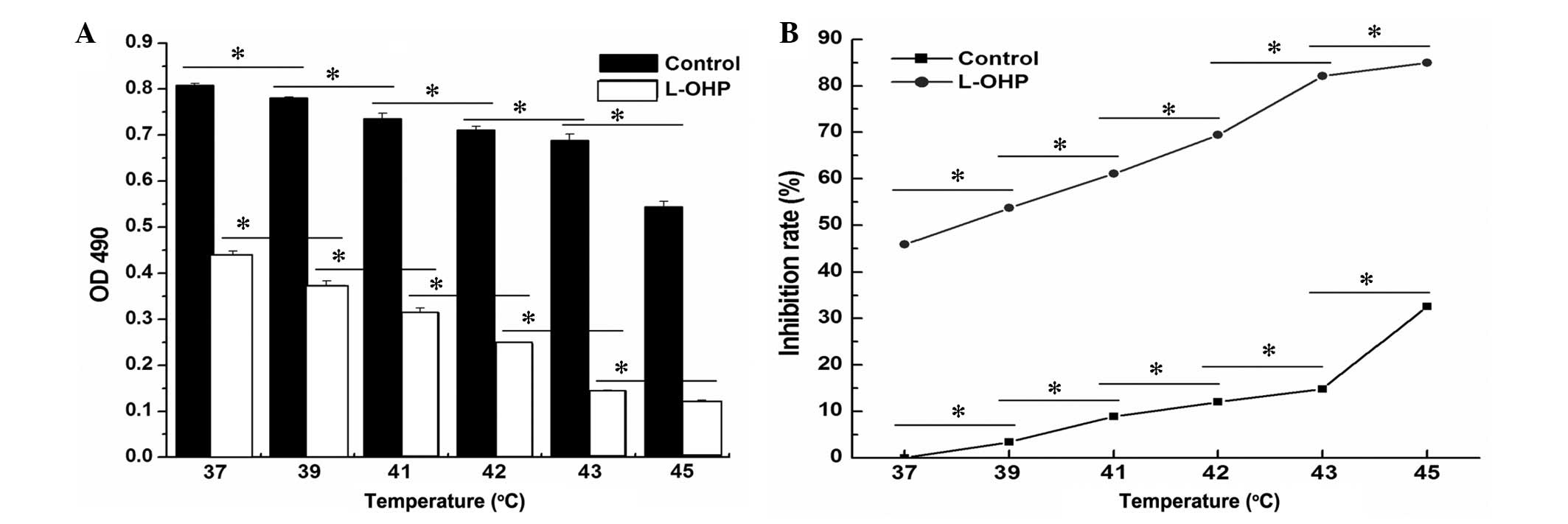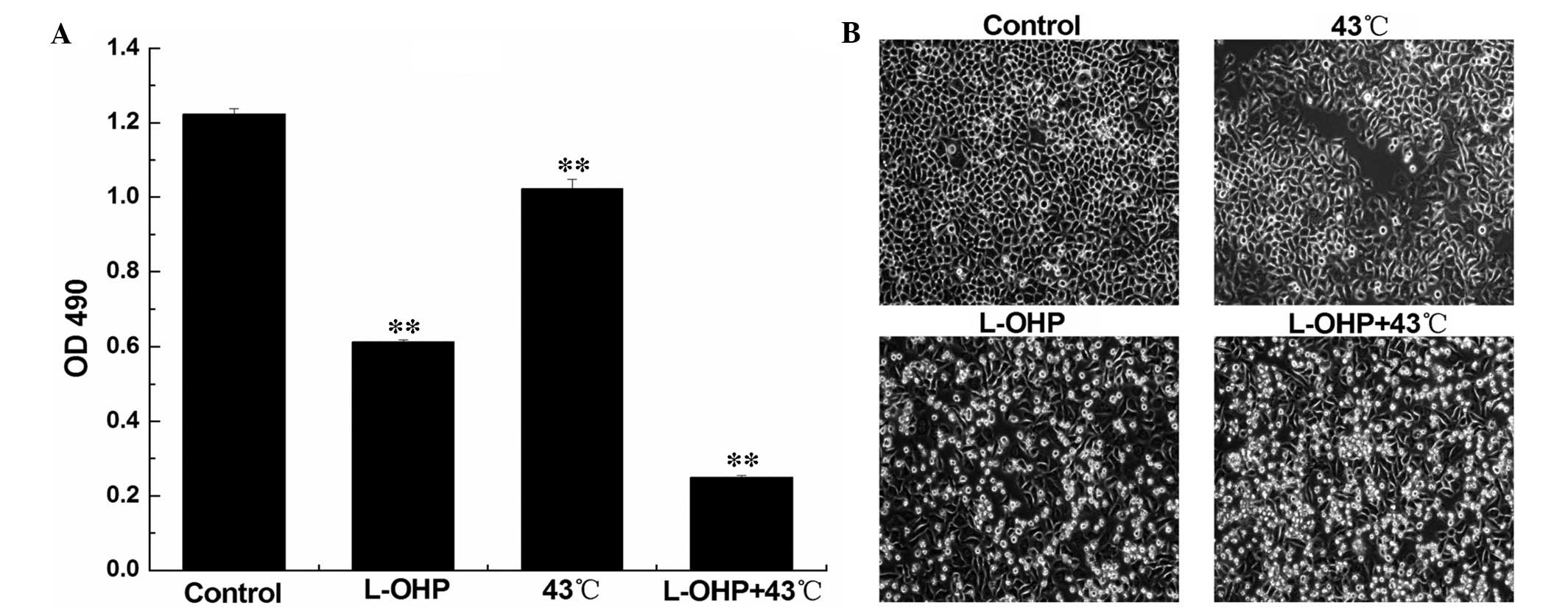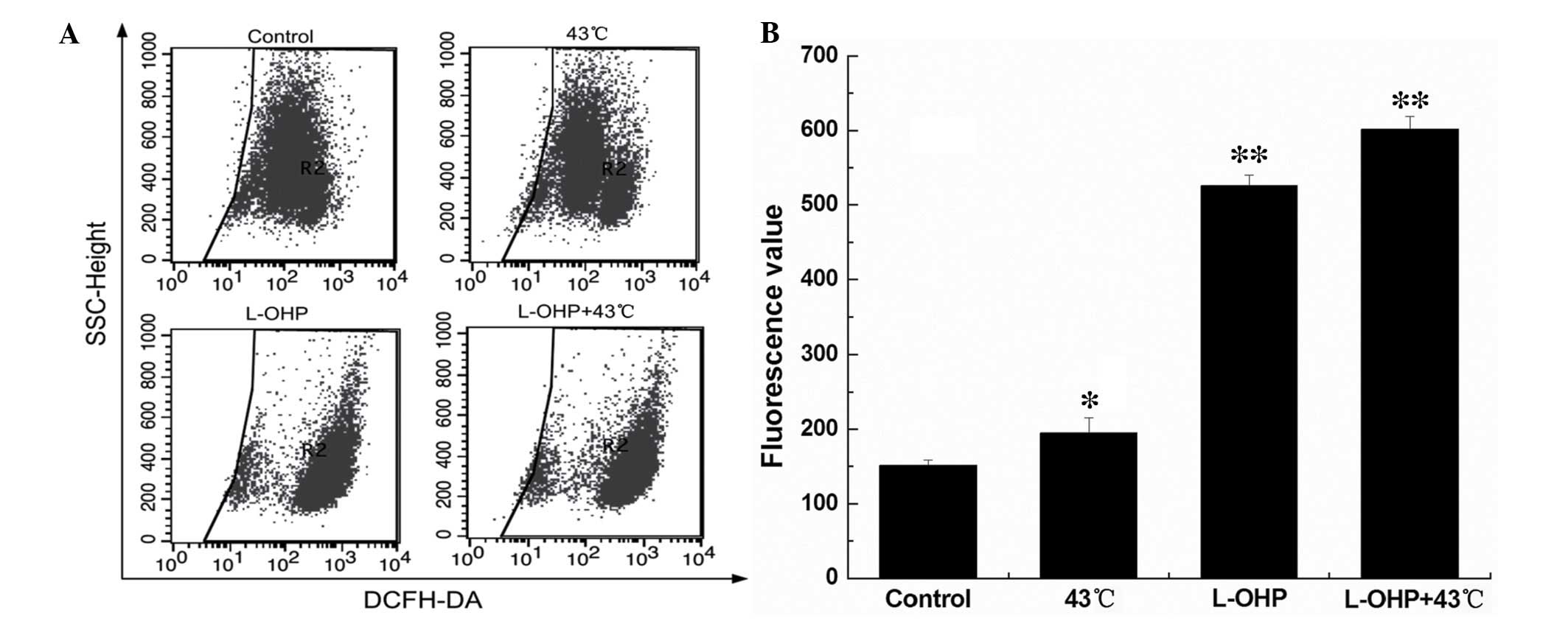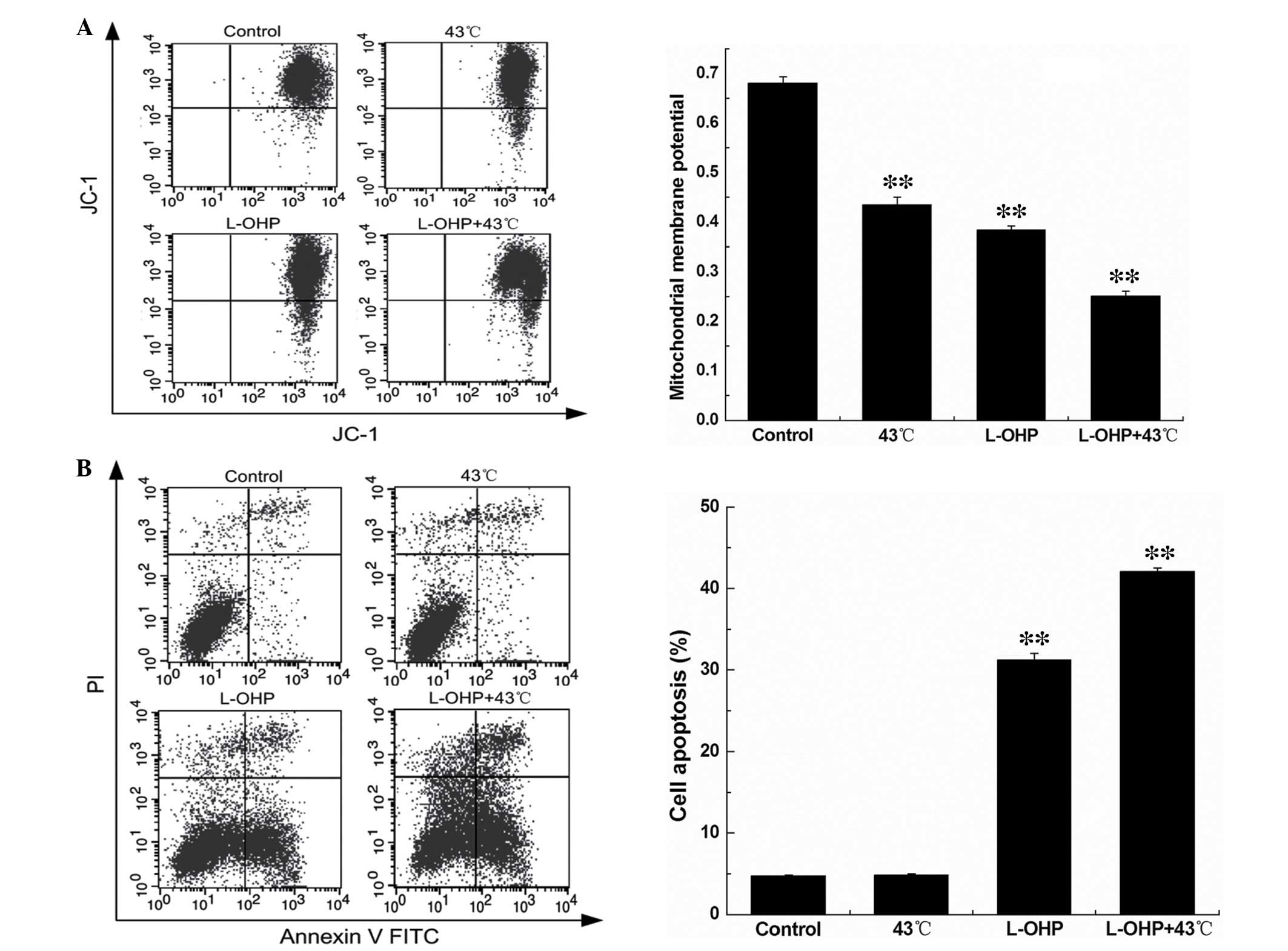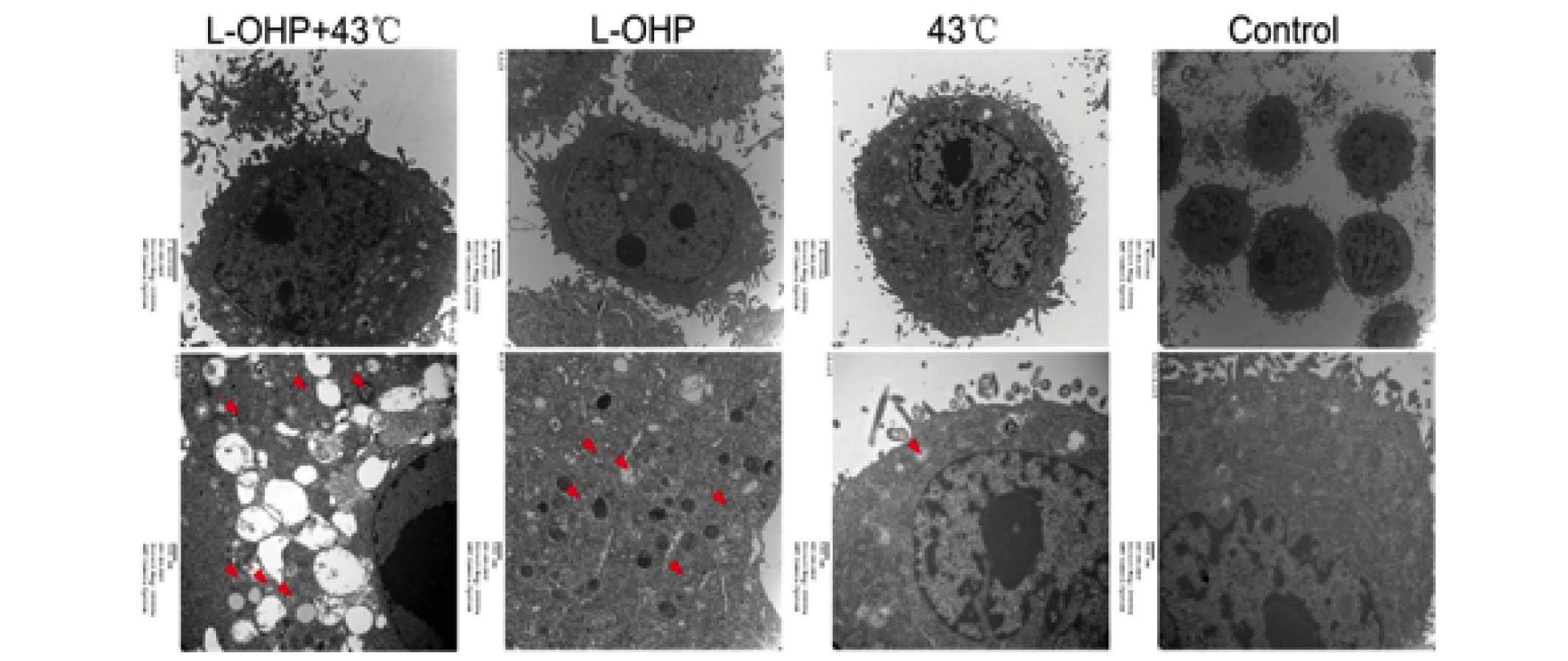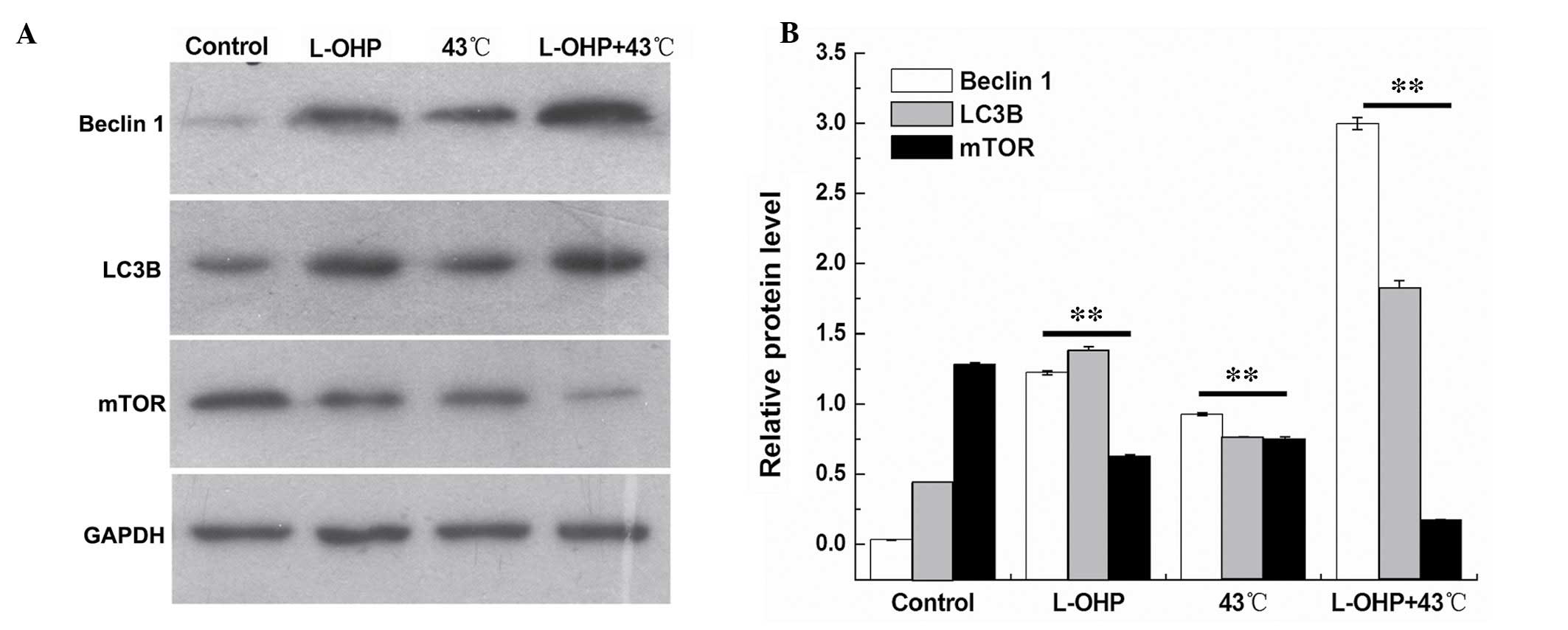|
1
|
Tang Y, Liu X, Su B, Zhang Z, Zeng X, Lei
Y, Shan J, Wu Y, Tang H and Su Q: microRNA-22 acts as a metastasis
suppressor by targeting metadherin in gastric cancer. Mol Med Rep.
11:454–460. 2015.
|
|
2
|
Li H, Lu P, Lu Y, Liu C, Xu H, Wang S and
Chen J: Predictive factors of lymph node metastasis in
undifferentiated early gastric cancers and application of
endoscopic mucosal resection. Surg Oncol. 19:221–226. 2010.
View Article : Google Scholar : PubMed/NCBI
|
|
3
|
Kato M, Ono S, Mabe K, Sakamoto N and
Aaska M: After endoscopic treatment of early stage gastric cancer.
Nihon Rinsho. 71:1429–1435. 2013.In Japanese. PubMed/NCBI
|
|
4
|
Valle M, Van der Speeten K and Garofalo A:
Laparoscopic hyperthermic intraperitoneal peroperative chemotherapy
(HIPEC) in the management of refractory malignant ascites: A
multi-institutional retrospective analysis in 52 patients. J Surg
Oncol. 100:331–334. 2009. View Article : Google Scholar : PubMed/NCBI
|
|
5
|
Ba MC, Cui SZ, Lin SQ, Tang YQ, Wu YB,
Wang B and Zhang XL: Chemotherapy with laparoscope-assisted
continuous circulatory hyperthermic intraperitoneal perfusion for
malignant ascites. World J Gastroenterol. 16:1901–1907. 2010.
View Article : Google Scholar : PubMed/NCBI
|
|
6
|
Kang R and Tang D: Autophagy in pancreatic
cancer pathogenesis and treatment. Am J Cancer Res. 2:383–396.
2012.PubMed/NCBI
|
|
7
|
Jabs T: Reactive oxygen intermediates as
mediators of programmed cell death in plants and animals. Biochem
Pharmacol. 57:231–245. 1999. View Article : Google Scholar : PubMed/NCBI
|
|
8
|
Li ZY, Yang Y, Ming M and Liu B:
Mitochondrial ROS generation for regulation of autophagic pathways
in cancer. Biochem Biophys Res Commun. 414:5–8. 2011. View Article : Google Scholar : PubMed/NCBI
|
|
9
|
Lehmann K, Rickenbacher A, Jang JH,
Oberkofler CE, Vonlanthen R, von Boehmer L, Humar B, Graf R,
Gertsch P and Clavien PA: New insight into hyperthermic
intraperitoneal chemotherapy: Induction of oxidative stress
dramatically enhanced tumor killing in in vitro and in vivo models.
Ann Surg. 256:730–737. 2012. View Article : Google Scholar : PubMed/NCBI
|
|
10
|
Chen F, Wang CC, Kim E and Harrison LE:
Hyperthermia in combination with oxidative stress induces
autophagic cell death in HT-29 colon cancer cells. Cell Biol Int.
32:715–723. 2008. View Article : Google Scholar : PubMed/NCBI
|
|
11
|
Law AS and Burt DW: qValue - a program to
calculate comparative measures of genomic reorganisation from
cytogenetic and/or linkage information. Comput Appl Biosci.
12:181–183. 1996.PubMed/NCBI
|
|
12
|
Peng J and Wang Y: Epidemiology, pathology
and clinical management of multiple gastric cancers: A mini-review.
Surg Oncol. 19:e110–e114. 2010. View Article : Google Scholar : PubMed/NCBI
|
|
13
|
Al-Shammaa HA, Li Y and Yonemura Y:
Current status and future strategies of cytoreductive surgery plus
intraperitoneal hyperthermic chemotherapy for peritoneal
carcinomatosis. World J Gastroenterol. 14:1159–1166. 2008.
View Article : Google Scholar : PubMed/NCBI
|
|
14
|
Liu YP, Ling Y, Qi QF, Zhang YP, Zhang CS,
Zhu CT, Wang MH and Pan YD: Genetic polymorphisms of ERCC1-118,
XRCC1-399 and GSTP1-105 are associated with the clinical outcome of
gastric cancer patients receiving oxaliplatin-based adjuvant
chemotherapy. Mol Med Rep. 7:1904–1911. 2013.PubMed/NCBI
|
|
15
|
Zhang XL, Shi HJ, Cui SZ, Tang YQ and Ba
MC: Prospective, randomized trial comparing 5-FU/LV with or without
oxaliplatin as adjuvant treatment following curative resection of
gastric adenocarcinoma. Eur J Surg Oncol. 37:466–472. 2011.
View Article : Google Scholar : PubMed/NCBI
|
|
16
|
Liu JF, Zhou XK, Chen JH, Yi G, Chen HG,
Ba MC, Lin SQ and Qi YC: Up-regulation of PIK3CA promotes
metastasis in gastric carcinoma. World J Gastroenterol.
16:4986–4991. 2010. View Article : Google Scholar : PubMed/NCBI
|
|
17
|
Ba M, Cui S, Lin S, Tang Y, Wu Y and Zhang
X: Resection of a giant hepatocellular carcinoma weighing over ten
kilograms. World J Gastroenterol. 16:1422–1424. 2010. View Article : Google Scholar : PubMed/NCBI
|
|
18
|
Cui S, Ba M, Huang D, Tang Y and Wu Y:
Study and development of BR-TRG-I hyperthermic perfusion
intraperitoneal treatment system. China Medical Devices. 24:7–9.
2009.
|
|
19
|
Fleury C, Mignotte B and Vayssière JL:
Mitochondrial reactive oxygen species in cell death signaling.
Biochimie. 84:131–141. 2002. View Article : Google Scholar : PubMed/NCBI
|
|
20
|
Thannickal VJ and Fanburg BL: Reactive
oxygen species in cell signaling. Am J Physiol Lung Cell Mol
Physiol. 279:1005–1028. 2000.
|
|
21
|
Cui K, Luo X, Xu K and Ven Murthy MR: Role
of oxidative stress in neurodegeneration: Recent developments in
assay methods for oxidative stress and nutraceutical antioxidants.
Prog Neuropsychopharmocol Biol Psychiatry. 28:771–799. 2004.
View Article : Google Scholar
|
|
22
|
Lemasters JJ, Nieminen AL, Qian T, Trost
LC, Elmore SP, Nishimura Y, Crowe RA, Cascio WE, Bradham CA,
Brenner DA and Herman B: The mitochondrial permeability transition
in cell death: A common mechanism in necrosis, apoptosis and
autophagy. Biochim Biophys Acta. 1366:177–196. 1998. View Article : Google Scholar : PubMed/NCBI
|
|
23
|
Vurusaner B, Poli G and Basaga H: Tumor
suppressor genes and ROS: Complex networks of interactions. Free
Radic Biol Med. 52:7–18. 2012. View Article : Google Scholar
|
|
24
|
Scherz-Shouval R and Elazar Z: Regulation
of autophagy by ROS: Physiology and pathology. Trends Biochem Sci.
36:30–38. 2011. View Article : Google Scholar
|
|
25
|
Scherz-Shouval R, Shvets E, Fass E, Shorer
H, Gil L and Elazar Z: Reactive oxygen species are essential for
autophagy and specifically regulate the activity of Atg4. EMBO J.
26:1749–1760. 2007. View Article : Google Scholar : PubMed/NCBI
|
|
26
|
Xu Y, Kim SO, Li Y and Han J: Autophagy
contributes to caspase-independent macrophage cell death. J Biol
Chem. 281:19179–19187. 2006. View Article : Google Scholar : PubMed/NCBI
|
|
27
|
Liu HD and Lu JX: Progress in mitophagy.
Chin J Cell Biol (Henderson NV). 23:467–471. 2008.
|
|
28
|
Quinsay MN, Thomas RL, Lee Y and
Gustafsson AB: Bnip3-mediated mitochondrial autophagy is
independent of the mitochondrial permeability transition pore.
Autophagy. 6:855–862. 2010. View Article : Google Scholar : PubMed/NCBI
|















